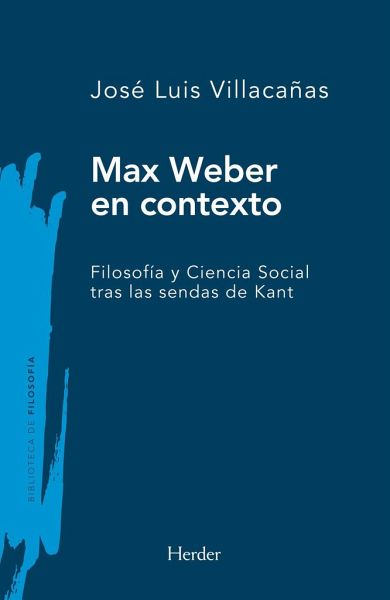
Max Weber en contexto
Versandkostenfrei!
Versandfertig in über 4 Wochen
53,99 €
inkl. MwSt.

PAYBACK Punkte
27 °P sammeln!
Max Weber was a sociologist, historian, economist, politician, and anthropologist. But also, and fundamentally, a philosopher. In it, philosophy once again becomes the essential activity of thinking about our relationship with reality (science), with our own action (ethics) - inserted in an "inhuman reality" that refutes all anthropocentism - and our ability to act together and manage the unavoidable conflicts derived from the insurmountable deficit of control of that reality (politics), doing so in such a way that we become existentially and passionately involved in its experience. This is ho...
Max Weber was a sociologist, historian, economist, politician, and anthropologist. But also, and fundamentally, a philosopher. In it, philosophy once again becomes the essential activity of thinking about our relationship with reality (science), with our own action (ethics) - inserted in an "inhuman reality" that refutes all anthropocentism - and our ability to act together and manage the unavoidable conflicts derived from the insurmountable deficit of control of that reality (politics), doing so in such a way that we become existentially and passionately involved in its experience. This is how witnesses such as Karl Jaspers, Karl Löwith, Dieter Heinrich and Raimon Aron saw it. José Luis Villacañas places Weber within his intellectual tradition, which is none other than that pursued by the Kantian spirit in the era of industrial capitalism. He thus offers us a surprisingly current vision of science, ethics and politics, aimed at the reconfiguration of a contemporary common sense that refuses the seductions of avant-garde charisma and reconciles itself with the rights of criticism and responsibility.


